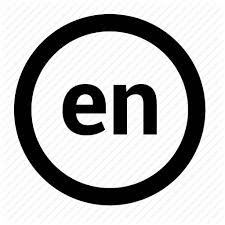Concerning the history, formulation and interpretation of the conversion’s issue in english language
Abstract
This paper examines history of formation, formulation and the process of conversion in English in the context of Functional Discourse Grammar. Although conversion has traditionally been considered to be morphological in nature (zero-derivation), different authors have suggested a syntactic approach, in which lexemes are deprived of categorial information in the lexicon and are put to use in different syntactic contexts and this article comprises proper scientific analysis and methodological description of various linguists’ approaches concerning this quite a controversary and complicated linguistic issue of conversion.
References
Bradley H. The Making of English. -London, 1937, p.131.
Bradley H. The Making of English. -London, 1937, p.132.
Brown G. The Grammar of English Grammars. -N.-Y., 1871, p122.
Kennedy A. Current English. –Boston 1935, p.35.
Matsner. An English Grammar. -London, 1874, p.41.
Robertson St. The Development of Modem English. -N.-Y., 1939, p.386.
Sabelnikova B.C. The role of conversion as a word-formation process in replenishing the vocabulary of the modern English language (based on neologisms 40-70gg): Abstract. diss. philol. sciences. - M., 1979.-p.20.
Smirnitsky A.I. The meaning of the word // VYA, M., 1953. -.№2. p. 27.
Sweet H. A New English Grammar- 2ndEdition -Oxford, 1900, p.39.
Sweet H. A New English Grammar. -Oxford, 1892, p.87.

In submitting the manuscript to the International Journal on Integrated Education (IJIE), the authors certify that:
- They are authorized by their co-authors to enter into these arrangements.
- The work described has not been formally published before, except in the form of an abstract or as part of a published lecture, review, thesis, or overlay journal.
- That it is not under consideration for publication elsewhere,
- The publication has been approved by the author(s) and by responsible authorities – tacitly or explicitly – of the institutes where the work has been carried out.
- They secure the right to reproduce any material that has already been published or copyrighted elsewhere.
- They agree to the following license and copyright agreement.
License and Copyright Agreement
Authors who publish with International Journal on Integrated Education (IJIE) agree to the following terms:
Authors retain copyright and grant the International Journal on Integrated Education (IJIE) right of first publication with the work simultaneously licensed under Creative Commons Attribution License (CC BY 4.0) that allows others to share the work with an acknowledgment of the work's authorship and initial publication in this journal.





1.png)
